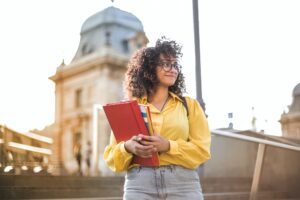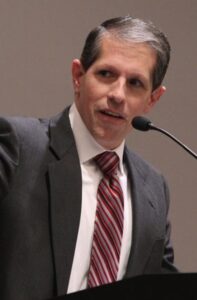Mission
We use science, facts, and the human experience to enable college students to share a better vision of sex and relationships.

Our Story
In 2005 a group of friends at Princeton University, under the leadership of 20-year-old Cassandra DeBenedetto, decided they’d had enough of college hookup culture. When they realized they weren’t the only students at Princeton who felt marginalized and hurt by the reigning campus attitudes towards sex and relationships, they decided to start a student club called the Anscombe Society that would offer peers an alternative view of dating, love, and marriage.
Fast-forward to 2007. By this time Cassy had received so many requests to help start Anscombe Societies at other universities, including Harvard and Yale, that upon graduating, she founded the Love and Fidelity Network to support these student initiatives and offer programming guidance, along with the resources necessary to effectively spread the message of love and fidelity on college campuses.
Today the Love and Fidelity Network continues to support Anscombe Societies on legacy campuses and also offers additional programming that includes national and regional conferences, nation-wide advocacy campaigns, and student-led campus reading groups.
Our Approach
From time immemorial, great thinkers have used the physical and metaphysical sciences to get at the meaning of our human existence. Since our inception, the Love and Fidelity Network has participated in this grand project, testing the hypothesis that human beings are made for one other. Our inquiries typically begin with a recognition of natural law (just as there are discoverable properties intrinsic to matter, there are properties, and values, intrinsic to human nature).
Science, fables, and experience can tell us a story of ourselves that we may not recognize upon first glance, or that may only become apparent after a lifetime. For example, how do familial relationships impact individuals and society? How does the union between husband and wife in marriage, a profound and potentially lifelong bond, shape family life? How is the character of sex – intimately personal, physical, spiritual, and emotional – shaped by the context of a permanent and exclusive marital union?

Our Team
“Find a group of people who challenge and inspire you, spend a lot of time with them, and it will change your life.” – Amy Poehler

Alain Oliver
Executive Director
As a veteran nonprofit administrator, he has led the financial, operational and executive functions of nonprofit organizations with up to 100 employees and $4.5 million dollars in annual revenue. In his previous position, Alain worked on the social problems that affect maternity, birth, and child development. He joins LFN to tackle these problems from a different angle. The foundation of a flourishing society is the courtship-marriage-family continuum, which when executed well, is the greatest source of prevention of many of our social and economic problems. This continuum has been severely weakened through self-inflicted wounds and external pressures, and now requires renewed attention, support and mending. Alain looks forward to leading LFN in this work.
Alain holds a Masters of Business Administration from the Smeal College of Business at The Pennsylvania State University and a Bachelor of Arts in Economics from Emory University. Born in Cuba, he is bilingual in English and Spanish, and currently resides locally with his wife and four young children.

Julia Evanko
Program Officer
Julia works to facilitate student leadership and to strengthen intercollegiate community. She received her Bachelor of the Arts in English and minor in theater at Princeton University, where she also served as co-president of Princeton’s Anscombe Society chapter during her junior and senior years. Her interest in the social problems that result from issues surrounding family, marriage, and sexuality led her to a summer internship at LFN in the summer of 2018. Her love of literature and the arts has only deepened her vision of sexual ethics despite their impoverishment within the broader culture. She hopes her written and spoken contributions will reflect the beauty and dignity of LFN’s message on every campus she visits.
